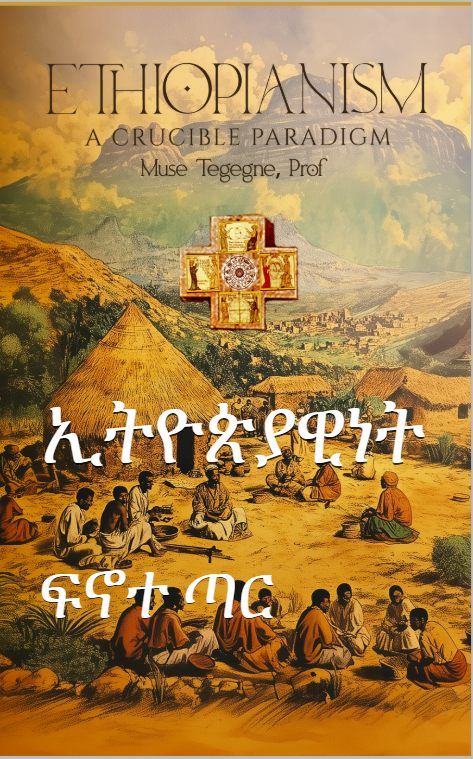
Ethiopianism denotes an appreciation or a “given.” Common parlance is something Ethiopians have taken for granted for over three millennia. It also became an assumption for all implied answers to Ethiopian questions and problems.
Ethiopianism as a "dominant paradigm" in the country refers to the values or system of thought in Ethiopian society that is most standard and widely held at a given time (i.e., three millennia). Ethiopianism is a dominant paradigm shaped by the community's cultural background and the context of the historical moment.
Ethiopianism is a paradigm that has three social prisms and reflects three dimensions. Ethiopianism will help us understand the relationship between paradigm and theory, and we shall turn in sequence to the significant elements that constitute a paradigm.
In this systematic paradigm, Ethiopianism tries to answer “what makes an Ethiopian society possible” as a national supposition formulated on a claim of “a consensus of all its inhabitants.”
Ethiopianism is an assumption expressed in the three paradigms of Systemic, Antagonistic, and Mosaic dimensions in three volumes. It is not limited to preconceptions about Ethiopian society. However, the suppositions that “answer” questions about Ethiopian human nature, culture, and human science are also crucial to developing Ethiopian social thought.
Ethiopianism denotes an appreciation or a “given.” Common parlance is something Ethiopians have taken for granted for over three millennia. It also became an assumption for all implied answers to Ethiopian questions and problems.
Ethiopianism as a “dominant paradigm” in the country refers to the values or system of thought in Ethiopian society that is most standard and widely held at a given time (i.e., three millennia). Ethiopianism is a dominant paradigm shaped by the community’s cultural background and the context of the historical moment.
Ethiopianism is a paradigm that has three social prisms and reflects three dimensions. Ethiopianism will help us understand the relationship between paradigm and theory, and we shall turn in sequence to the significant elements that constitute a paradigm.
In this systematic paradigm, Ethiopianism tries to answer “what makes an Ethiopian society possible” as a national supposition formulated on a claim of “a consensus of all its inhabitants.”
Ethiopianism is an assumption expressed in the three paradigms of Systemic, Antagonistic, and Mosaic dimensions in three volumes. It is not limited to preconceptions about Ethiopian society. However, the suppositions that “answer” questions about Ethiopian human nature, culture, and human science are also crucial to developing Ethiopian social thought.

